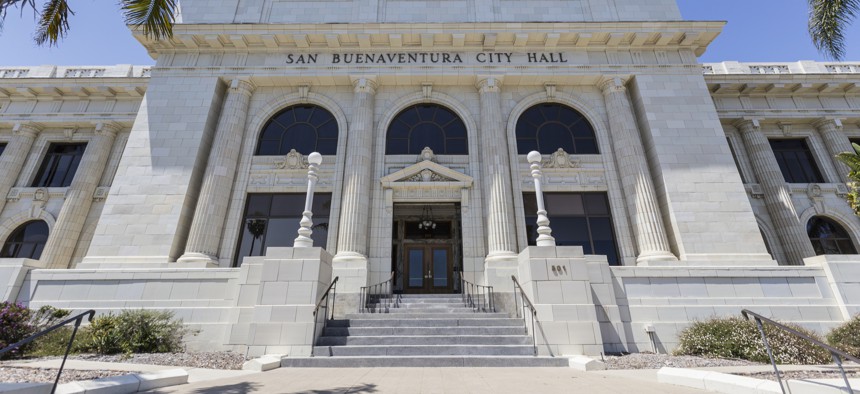Why Cities and Counties Need to Monitor the Sagging Retail Sector

City Hall in Ventura, California Shutterstock

Connecting state and local government leaders
A new analysis warns that a “storm looms on the horizon” for local sales tax revenue.
Stress and transformation in the U.S. retail sector threaten to undermine local government revenues from sales taxes in the coming years, a credit rating agency cautioned this week.
Standard & Poor’s Global Ratings issued a report Monday that characterized shifts happening in the nation’s retail sector as “foundational,” adding that these changes could create difficulties for local governments planning to repay debt with sales tax collections.
The report says credit ratings for bonds backed by sales taxes will likely remain stable in the short-to-medium term and that “sales tax revenue bonds have always incorporated the ebbs and flows in local retail sales.” But the report adds: “A storm looms on the horizon.”
As online shopping reshapes retail, the brick-and-mortar side of the sector has seen store closures and bankruptcies. And, the report points out, stagnant wages and high living costs are limiting the income consumers have to spend on retail goods and changing purchasing habits.
The Standard & Poor’s analysts write:
Given what we perceive as a foundational shift occurring in the U.S. retail sector, we believe local officials need to adapt to this changing landscape. Local governments have several options available to them including, but not limited to, revised economic development strategies, bond restructuring to meet lower revenue expectations of future retail sales tax revenues, refunding debt with additional revenues, or augmenting the range of transactions to which sales taxes can apply.”
While states have found ways to capture tax revenue from online sales, the report says municipalities will likely see diluted benefits from e-commerce “and only if they receive state-shared sales tax revenues in addition to locally driven sales tax revenues.”
“Local governments,” the report adds, “are currently limited from imposing local taxes on e-commerce transactions.”
Bill Lucia is a Senior Reporter for Government Executive’s Route Fifty and is based in Washington, D.C.

NEXT STORY: W.Va. Governor: Appalachian Coal Subsidies Are Matter of National Security





